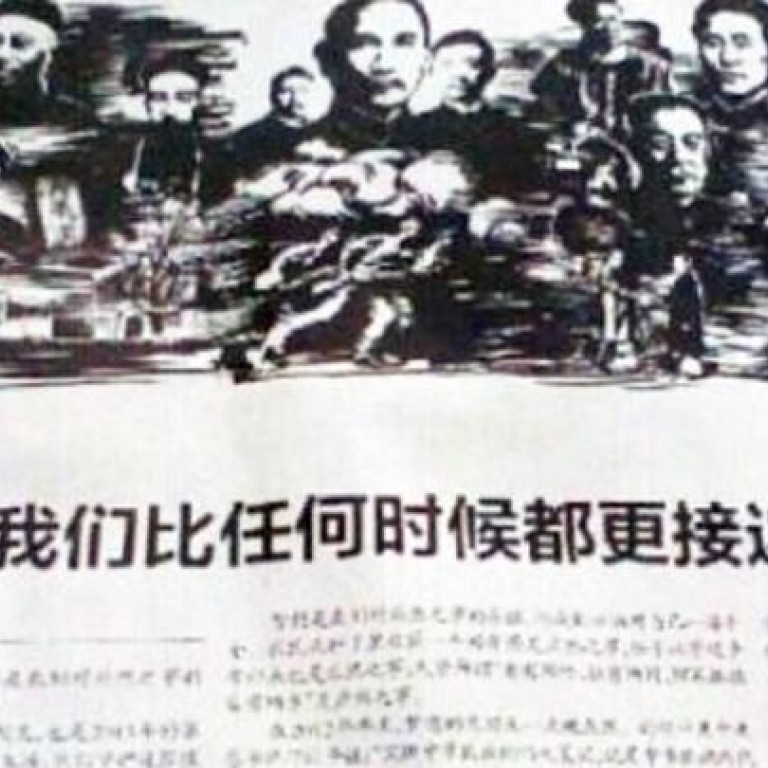
Journalists call for censor to quit over editorial scandal
Dozens of journalists have demanded the resignation of Guangdong's propaganda chief, after he swapped one newspaper's new year's outlook with his own piece praising the “Chinese Dream”.
In the backlash against a top government censor’s heavy-handed editorial intervention into a prestigious Chinese newspaper, dozens of prominent journalists have issued an open letter demanding the resignation of the top propagandist in Guangdong Province.
“We believe that Minister Tuo Zhen’s actions overstepped boundaries, that they were authoritarian, ignorant and unnecessary,” read the letter, which carried the names of more than 30 journalists who used to work at the paper, the Guangzhou-based Southern Weekly.
Many of these journalists are now prominent opinion leaders, including published authors, columnists, university professors and senior editors at other news organisations.
Their target of protest, Tuo Zhen, is the top propaganda official at the Communist Party’s Guangdong provincial committee.
He is believed to have given direct orders to swap the paper’s new year editorial, due to be published this Wednesday, for a piece he penned himself, praising the “Chinese Dream” and new leader Xi Jinping’s policies.
The open letter is the latest development in a wave of online protests in the last few days against the recent media clampdown.
Earlier on Friday, Beijing-based Yanhuang Chunqiu magazine, one of China’s most prominent pro-reform publications, said authorities had shut down its website after revoking its online publishing licence.
One former reporter who signed the open letter said a former colleague shared her digital version of the letter via a popular Chinese social media platform on Friday morning, telling her the letter would be published around noon.
The former reporter, who asked not to use her name – mainland journalists are not allowed to be interviewed by foreign media – said she really wanted the current reporters and editors of the to make their voice heard.
“I also hope that other Chinese journalists and academics will support [the newspaper],” she said.
“Personally, I would prefer it if Tuo left Guangdong and let the paper operate on normal journalistic working procedures."
"The authorities should not retaliate against the people involved with this issue,” she added.
A senior editor working for Nanfang Media Group, the state-owned parent of which also runs a host of other newspapers and magazines, told the that the editorial intrusion seemed to be part of a systematic crackdown against the free-wheeling media outlets in affluent Guangdong province.
The and the
“Both publications were told to wait for punishment to be handed down,” said the editor, who requested not to be named.
The magazines were ordered to submit their editorial plans up to six weeks in advance, for provincial propaganda authorities to review and approve.

